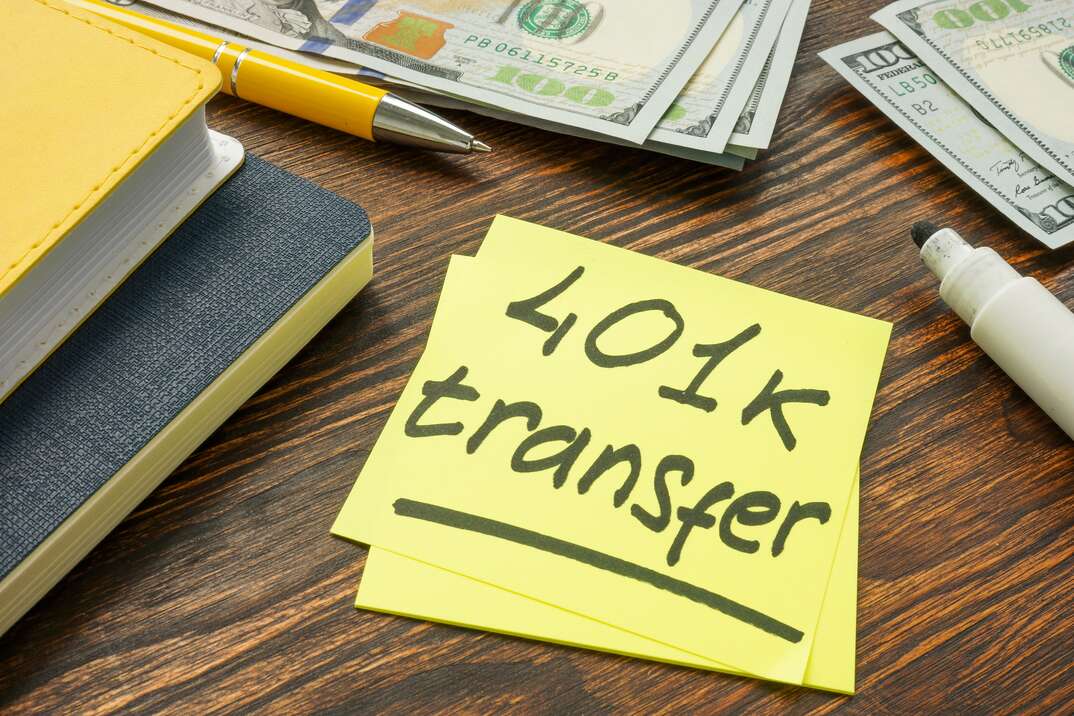How Do I Roll Over My 401 (k) When I Start a New Job?

Starting a new job with a new company is exciting, but it’s also a time filled with lots of decisions — including what to do with your old 401(k).
One common option is to roll over the existing 401(k) to your new retirement account. This guide should help you do that — or pick one of the many other options you have for your money.
How Do I Roll Over My 401(k) From My Old Job to My New One?
Direct Rollover
First, check with your new employer to see if they take 401(k) rollovers from previous employers — not all employers do. The best way to move the money is through a direct rollover, which means the financial institution holding your old account sends the money directly to the new financial institution. This is the easiest option, and it doesn't risk the tax benefits of having a 401(k). Talk to the plan administrator with your new company to complete the necessary paperwork to initiate the rollover.
Roll It Over Yourself
The alternative is having the old 401(k) institution mail you a check, which you would then deposit into your new retirement account. With this option, 20% usually gets withheld for taxes, but you'll get it back as a tax credit if you complete the rollover process. You only have 60 days to deposit the full amount of the rollover into a new retirement account, including the 20% that was withheld. If you don't deposit the full amount within that timeframe, you'll have to pay taxes on the amount you don't deposit, and you'll face a 10% early withdrawal penalty if you're not at least 59.5 years old.
If you don't want to roll over a 401(k) to your new retirement plan, you do have other options.
- Leave it. Your previous employer may give you the option to leave your money where it is. This is the easiest option because you don't have to do anything, but it's easy to forget about an old retirement account over time. Another consideration is that your former employer can cash the 401(k) out for you automatically if you have less than $5,000 in it.
- Roll over the 401(k) to an IRA. You can also roll over 401(k) money into a traditional or Roth IRA (individual retirement account). These plans often give you more control over how your money is invested, and you could save on management fees.
- Cash out. If you're looking for a cash payout, you have that option with your old 401(k). However, it is considered income, which makes it taxable, so you might have to pay an early withdrawal penalty.
Should I Cash Out?
Cashing out your 401(k) when you switch jobs could cost you a significant amount of money. You'll pay your normal income taxes on the amount you cash out, but you might also face a 10% early withdrawal penalty if you're not 59.5 years old. You also lose the opportunity to gain interest on that money. If you still have several years (or decades) before retirement, you could miss out on a significant amount of interest accrual.
Cashing out your 401(k) usually isn't the best financial decision. If you decide to cash out the account, talk to a financial adviser to ensure you understand how it will affect you financially, including how to report this income on your tax return.
Benefits When You Roll Over a 401(k)
Rolling over your 401(k) makes it easier to track your retirement funds. It keeps everything in one account, so you won't forget about old 401(k) accounts. It's also easier to monitor your retirement fund growth and set savings goals. If your new 401(k) plan has better investment options or lower fees, you could see better growth. You also protect your tax benefits with a direct rollover, and the process is generally easy.
If you're not sure what to do with your old 401(k), talk to your new plan administrator or a financial adviser to explore the options in detail.
Elocal Editorial Content is for educational and entertainment purposes only. The information provided on this site is not legal advice, and no attorney-client or confidential relationship is formed by use of the Editorial Content. We are not a law firm or a substitute for an attorney or law firm. We cannot provide advice, explanation, opinion, or recommendation about possible legal rights, remedies, defenses, options or strategies. The opinions, beliefs and viewpoints expressed by the eLocal Editorial Team and other third-party content providers do not necessarily reflect the opinions, beliefs and viewpoints of eLocal or its affiliate companies. Use of the Blog is subject to the
Website Terms and Conditions.The eLocal Editorial Team operates independently of eLocal USA's marketing and sales decisions.



